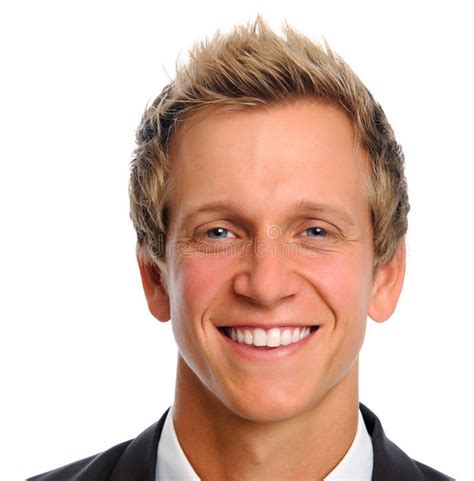For many men, the pursuit of physical and financial strength is a cornerstone of well-being and self-worth. Yet, it’s incredibly common to encounter formidable obstacles: the frustrating wall of a fitness plateau or the persistent gnawing worry of financial fear. These aren’t just external challenges; they are deeply rooted in our mindset. Understanding and implementing specific mental strategies can be the key to unlocking new levels of performance and security.
Breaking Through Fitness Plateaus: A Mindset Makeover
Hitting a fitness plateau can be incredibly demotivating. You’re working hard, following your routine, but the gains stop coming, the weight won’t budge, or your strength stalls. This isn’t necessarily a sign of physical failure, but often a mental one. Your body adapts, and your mind needs to adapt too.
The first step is recognizing that a plateau is an opportunity, not a dead end. It’s an invitation to reassess, innovate, and push beyond your current comfort zone. The mental game here is about shifting from frustration to curiosity and determination.

Redefining Your Fitness Goals
If your goal is simply ‘get stronger’ or ‘lose weight,’ it’s too vague. Break it down. Set SMART goals: Specific, Measurable, Achievable, Relevant, and Time-bound. Focus on process goals (e.g., ‘I will increase my bench press by 5 lbs over the next month by consistently adding 2.5 lbs to one set each week’) rather than just outcome goals. This gives you actionable steps and builds momentum.
Embracing Variation & Progressive Overload
Your mind craves novelty, and so does your body. Sticking to the same routine for too long leads to adaptation, then stagnation. Introduce new exercises, alter your rep ranges, change your training split, or explore different modalities (e.g., switch from weights to bodyweight, try a new sport). Mentally, this keeps things fresh and prevents boredom. Physically, it shocks your muscles into new growth. Progressive overload isn’t just about adding weight; it can be more reps, more sets, less rest, or better form.
The Power of Positive Self-Talk
When you’re stuck, negative self-talk can easily creep in. ‘I’m not strong enough,’ ‘I’ll never reach my goal.’ Challenge these thoughts. Replace them with empowering affirmations: ‘I am capable of pushing through this,’ ‘Every effort counts,’ ‘I am learning and adapting.’ Visualization is also key: vividly imagine yourself achieving your goals, feeling the strength, and seeing the progress.
Confronting Financial Fear: Shifting Your Perspective
Financial fear can manifest as chronic worry about bills, job security, retirement, or unexpected expenses. It can be paralyzing, leading to avoidance or rash decisions. Often, this fear stems from a perceived lack of control and understanding. Overcoming it requires a shift from a scarcity mindset to one of empowerment and strategic action.
Just like a fitness plateau, financial fear indicates areas where growth and change are needed. It’s a signal to engage, educate yourself, and take proactive steps, rather than letting anxiety dictate your choices.

Building Financial Literacy & Awareness
Fear thrives in ignorance. The more you understand about your personal finances – income, expenses, debt, investments – the more control you feel. Dedicate time to learning: read books, listen to podcasts, take online courses. Understand basic economic principles, investment strategies, and debt management. Knowledge is power, and it dispels the shadows of the unknown.
Cultivating a Budgeting & Saving Discipline
A budget isn’t a restriction; it’s a freedom map. It allows you to consciously direct your money towards your priorities, rather than wondering where it all went. Automate savings to build an emergency fund – typically 3-6 months of living expenses. This ‘safety net’ is a powerful antidote to financial fear, providing a buffer against unforeseen circumstances and giving you immense peace of mind.

Developing a Long-Term Financial Vision
Think beyond the next paycheck. What does financial freedom look like to you in 5, 10, 20 years? Break down these large goals into smaller, manageable steps. Just as you’d plan a fitness regimen, create a financial plan. This long-term perspective helps you weather short-term fluctuations and makes daily financial decisions align with your broader aspirations.
Seeking Guidance & Embracing an Abundance Mindset
Don’t be afraid to seek advice from financial professionals or trusted mentors. Their expertise can provide clarity and accelerate your progress. Additionally, consciously cultivate an abundance mindset. Instead of focusing on what you lack, focus on opportunities, resources, and what you can create. This positive outlook attracts more solutions and possibilities, shifting your mental framework from scarcity to growth.
The Interconnectedness of Mind, Body, and Wallet
It’s no coincidence that the mindset hacks for overcoming fitness plateaus and financial fear share common threads. Both require discipline, consistency, goal setting, an ability to track progress, and resilience in the face of setbacks. Mastering one area often strengthens your capacity to tackle the other.
The mental fortitude developed from consistently showing up at the gym, even when you don’t feel like it, translates directly into the discipline needed to stick to a budget or save for the future. Similarly, the sense of security gained from financial planning can reduce stress, allowing for better focus and energy in your physical pursuits. Your mind is the bridge connecting all these aspects of your life.

Sustaining Momentum and Embracing Growth
Overcoming plateaus and fears isn’t a one-time event; it’s an ongoing journey of growth. The key is to remain adaptable, continue learning, and consistently apply these mindset hacks. Celebrate your victories, no matter how small, and use setbacks as valuable learning opportunities rather than reasons to quit.
By consciously shifting your perspective, embracing challenge, and taking proactive steps in both your fitness and financial life, men can cultivate a powerful sense of self-mastery and resilience. It’s about building a robust inner game that equips you to thrive, no matter what challenges come your way.





